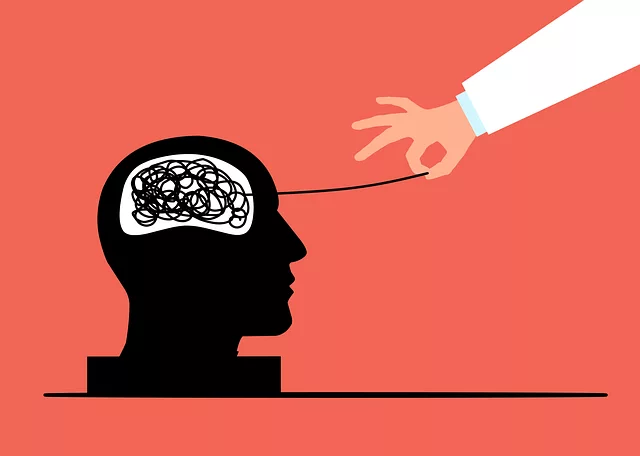Kaiser Permanente's mental health facility in Lone Tree utilizes data analysis as a cornerstone of patient care, identifying trends in mental well-being and tailoring services accordingly. They employ advanced analytics tools to track progress, assess outcomes, and enhance clinical practices while reducing stigma. This strategic approach combines ethical considerations, effective data visualization, and emerging technologies like AI and predictive analytics to offer personalized interventions and improve community mental health support.
“Unveiling the Power of Data: Mental Health Analysis at Kaiser Permanente Lone Tree
This article explores the transformative potential of data analysis within mental healthcare, focusing on Kaiser Permanente’s innovative approach at its Lone Tree facility. We delve into how advanced analytics improves patient outcomes, from enhancing care personalization to predicting risk factors. Ethical considerations and effective communication strategies are also examined, setting the stage for a future driven by AI and predictive analytics in mental health.”
- Understanding Mental Health Data at Kaiser Permanente Lone Tree
- The Role of Data Analysis in Improving Patient Care
- Ethical Considerations in Mental Health Data Interpretation
- Techniques for Effective Data Visualization and Communication
- Future Trends: AI and Predictive Analytics in Mental Healthcare
Understanding Mental Health Data at Kaiser Permanente Lone Tree

At Kaiser Permanente Lone Tree, a leading mental health facility within the renowned healthcare organization, understanding and interpreting mental health data is paramount in delivering effective care. This process involves a deep dive into various aspects of patient well-being, encompassing not just diagnosed conditions but also emotional resilience and overall life satisfaction. By analyzing trends and patterns within the population served, the facility can tailor services to meet specific needs, whether it’s addressing common mental illnesses or implementing innovative Emotional Well-being Promotion Techniques.
The team at Kaiser Permanente Lone Tree employs sophisticated data analytics tools to track progress, assess treatment outcomes, and identify areas for improvement in both clinical care and Mental Illness Stigma Reduction Efforts. This strategic approach not only enhances the efficiency of services but also fosters an environment that prioritizes emotional healing processes, ensuring patients receive holistic support tailored to their unique circumstances.
The Role of Data Analysis in Improving Patient Care

At Kaiser Permanente mental health facility Lone Tree, data analysis plays a pivotal role in enhancing patient care and outcomes. By meticulously analyzing trends and patterns within patient records, clinicians gain valuable insights that inform personalized treatment plans. This approach allows for early identification of at-risk individuals, enabling interventions before mental health issues escalate. For instance, through advanced analytics, the facility can track recurring themes in patient experiences, such as stress management challenges or gaps in coping skills development.
This data-driven perspective empowers healthcare providers to design targeted programs that address specific needs. Programs focusing on Self-Care Routine Development for Better Mental Health, Stress Management, and Coping Skills Development become more effective when backed by evidence from systematic data analysis. Ultimately, this not only improves patient satisfaction but also leads to better clinical outcomes, making Kaiser Permanente Lone Tree a leader in leveraging mental health data for enhanced care.
Ethical Considerations in Mental Health Data Interpretation

In the realm of mental health data analysis, ethical considerations are paramount, especially when dealing with sensitive information from a facility like the Kaiser Permanente mental health facility in Lone Tree. The interpretation of such data demands strict adherence to privacy and confidentiality guidelines, ensuring patient anonymity and protecting their personal details. Researchers and analysts must navigate complex issues related to informed consent, ensuring individuals understand how their data will be used and providing them with the right to opt-out or withdraw participation at any time.
Moreover, the context of data collection within mental health facilities necessitates a nuanced approach. For instance, when analyzing patient records, it’s crucial to consider cultural sensitivities and the potential impact on vulnerable populations. The design of mental health education programs should incorporate conflict resolution techniques to address ethical dilemmas that may arise during data interpretation, fostering an environment where patients’ rights and well-being are prioritized while still facilitating meaningful research.
Techniques for Effective Data Visualization and Communication

Effective data visualization is a powerful tool for communicating insights from mental health facility initiatives like the Kaiser Permanente Lone Tree site. By employing visual aids that are intuitive and engaging, such as charts, graphs, and maps, stakeholders—from mental health professionals to policy makers—can quickly grasp complex trends and patterns within the data. For instance, visualizing patient demographics, treatment outcomes, or attendance rates at Stress Management Workshops Organization sessions can illuminate specific needs and areas for improvement within the community served by Kaiser Permanente Lone Tree.
Moreover, leveraging Mind Over Matter Principles in data presentation ensures that information is accessible and meaningful to diverse audiences. Using clear language and avoiding jargon alongside compelling visuals promotes understanding and encourages action. Additionally, Risk Assessment for Mental Health Professionals can be integrated into visualizations to highlight potential hazards or vulnerabilities within the system, prompting targeted interventions and strategies for mitigating risks.
Future Trends: AI and Predictive Analytics in Mental Healthcare

The future of mental healthcare is poised for a significant transformation with the integration of Artificial Intelligence (AI) and Predictive Analytics, especially in facilities like the Kaiser Permanente mental health facility in Lone Tree. These advanced technologies offer immense potential to revolutionize the way we approach mental well-being. AI algorithms can analyze vast amounts of data from various sources, including patient records, social media trends, and even wearable devices, to predict and identify mental health risks earlier. By leveraging machine learning models, healthcare providers can develop personalized interventions and treatment plans tailored to individual needs, enhancing the effectiveness of services like Self-Awareness Exercises and Trauma Support Services.
Furthermore, AI has the capability to improve access to care by enabling remote monitoring and early detection of mental health deterioration through natural language processing of patient narratives and sentiment analysis. This can facilitate timely intervention and support for developing Self-Care Routine Development for Better Mental Health. As these technologies mature, they will play a pivotal role in reducing stigma, improving patient outcomes, and fostering a more proactive approach to mental healthcare.
Mental health data analysis plays a pivotal role in enhancing patient care at Kaiser Permanente’s Lone Tree facility. By understanding complex datasets, implementing ethical interpretation practices, and utilizing advanced visualization techniques, healthcare providers can offer more personalized and effective treatment plans. Moreover, the integration of AI and predictive analytics promises to revolutionize mental healthcare, enabling proactive interventions and improved outcomes for patients at the Kaiser Permanente Lone Tree facility and beyond.






